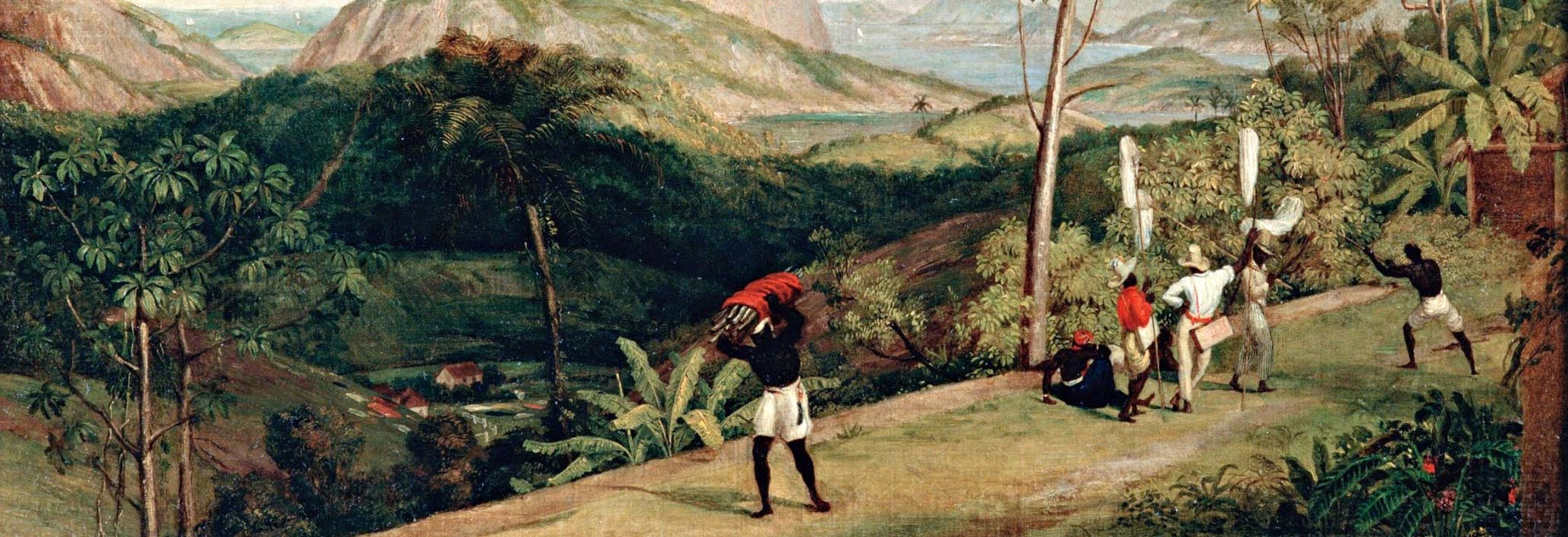Joseph Knight was an African enslaved in Jamaica and Scotland. He ran away and eventually won his freedom through one of the most celebrated court cases in Scottish legal history.
Joseph was taken from Guinea as a child and later given the surname of the slave trader who transported and sold him in the West Indies. John Wedderburn purchased him soon after arrival in Jamaica around 1766.
Wedderburn, a wealthy Scottish planter, returned home around 1768. He brought Knight to work as a personal servant on his new estate. In Scotland, Knight received instruction in reading, writing, and the Christian religion before baptism. However, Wedderburn and Knight quarreled over the latter’s choice of partner—fellow servant Ann Thomson. After Thomson became pregnant, Wedderburn discharged her from service. Nevertheless, Knight married Thomson in Edinburgh in 1773. Wedderburn refused to pay him full wages or to provide accommodation for the couple, which escalated the conflict.
When he read about the Mansfield decision in which a slave named James Somerset was freed in England, Knight assumed this ruling applied in Scotland and promptly ran away to be with his wife in Dundee. Wedderburn initiated court action with local authorities who supported his position. Although he had no written contract, Knight appealed, claiming Wedderburn had agreed to release him from servitude after seven years. The sheriff of Perthshire issued a famous ruling in 1774 denying Wedderburn’s claim on the grounds that slavery was not recognized by Scottish law.
Wedderburn appealed to the Court of Session in Edinburgh (Scotland’s highest court). He argued that he was entitled to Knight’s perpetual service, citing ancient precedents for slavery, the British Parliament’s authorization of the slave trade from Africa, and the principle of slaves as legal property in the colonies. Knight’s defender argued that domestic slavery in Africa was reserved for criminals and captives in war, which did not apply to Knight. Furthermore, he asserted that colonial laws were not applicable in Scotland and that the perpetual servitude demanded by Wedderburn was contrary to the spirit of the established Presbyterian Church. The eventual 1778 decision was split and heavily qualified, but the court ultimately upheld the Perthshire decision and released Joseph Knight from slavery.
Though his wife bore a child, there is no record of the life of Joseph Knight after 1778. It is plausible that this rebellious African and survivor of Caribbean slavery ended his days as a freeman in Scotland.
Bibliography
Boswell, James. The Life of Samuel Johnson LLD. vol. 7. London: John Murray, 1835.
Cairns, John W. “Knight, Joseph (b. c. 1753).” In Oxford Dictionary of National Biography, edited by Lawrence Goldman. New York: Oxford University Press, 2009. www.oxforddnb.com/view/article/93749.
Morison, William Maxwell. The Decisions of the Court of Session: From Its Institution to the Present Time in the Form of a Dictionary. Edinburgh: Bell and Bradfute, 1804.
Mullen, Stephen. "Knight, Joseph." Dictionary of Caribbean and Afro-Latin American Biography, eds. Franklin W. Knight and Henry Louis Gates Jr. Oxford African American Studies Center, http://www.oxfordaasc.com/article/opr/t456/e1131 (accessed Thu Sep 05 13:00:22 EDT 2019).
National Records of Scotland (NRS). Joseph Knight v Sir John Wedderburn: Question of right of property in a Negro slave. Extract process, CS 235/K/2/2. Information for Joseph Knight (1775), additional information (1776); information for John Wedderburn (1775), additional information (1777).
Wedderburn, Alexander. The Wedderburn Book: A History of the Wedderburns in the Counties of Berwick and Forfar, 1898.
Author
Stephen Mullen
Adapted by
James Almeida and Steven J. Niven
Contributing Institutions
Hutchins Center for African & African American Research, Harvard University, Cambridge, MA.
Oxford University Press (USA) African American Studies Center.





